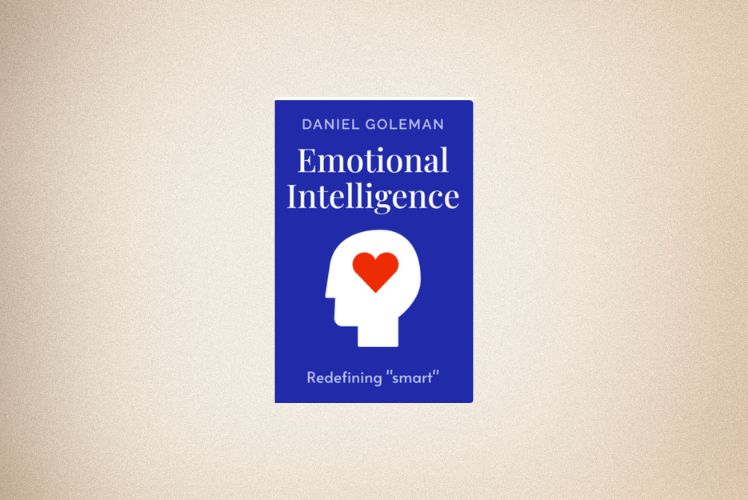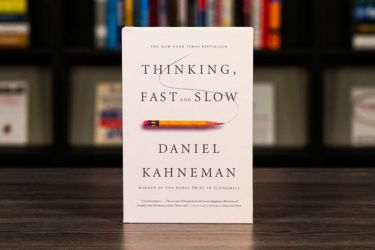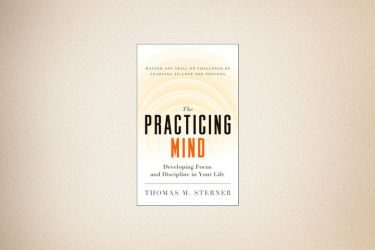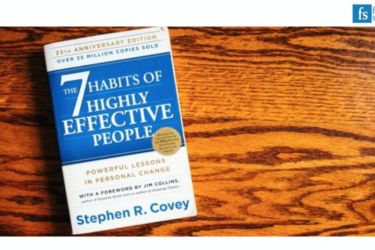Emotional intelligence (EI) is a concept that has changed how we view success and personal growth. In his influential book, Goleman argues that emotional intelligence may matter more for success than traditional intelligence (IQ). This idea has sparked discussions about the role of emotions in our lives and how they affect our actions, relationships, and overall wellbeing.
Through engaging insights and research, Goleman explores topics like self-awareness, empathy, and the management of our emotions. He balances practical advice with scientific findings, making the book both informative and applicable. Whether we are looking to improve our personal lives or our professional relationships, understanding emotional intelligence can provide valuable tools for growth.
As we dive deeper into Goleman's work, we can better appreciate how our emotional lives shape our experiences. This review will illuminate key concepts from the book and discuss its impact on our understanding of intelligence and success.
Key Takeaways
- Emotional intelligence is crucial for personal and professional success.
- Self-awareness and empathy are central to developing emotional intelligence.
- Goleman's insights have significantly influenced how we approach emotions in our lives.
Book Overview and Purpose
In this section, we will explore the background of emotional intelligence, the purpose and impact of Daniel Goleman's book, and his unique approach to psychology. Understanding these aspects will give us insight into why the book is influential and relevant today.
Background of Emotional Intelligence
Emotional intelligence (EQ) is a concept that evaluates how we manage our emotions and understand those of others. Daniel Goleman popularised this theory in his 1995 book, highlighting its role in personal success and relationships. Prior to Goleman’s work, traditional intelligence (IQ) was seen as the main predictor of success.
Research shows that emotional intelligence can be even more critical. It encompasses skills such as empathy, self-awareness, and emotional regulation. These skills are essential in areas like leadership, teamwork, and effective communication. Goleman's emphasis on EQ explores how these abilities can evolve and grow over time.
Purpose and Impact of the Book
The primary purpose of Goleman's "Emotional Intelligence" is to shift our understanding of human capability from IQ to emotional skills. He argues that emotional intelligence can account for a significant portion of a person's success, potentially up to 80%.
The book has impacted education, business, and mental health sectors. It encourages us to develop our emotional skills through practical strategies. Goleman explains how a healthy emotional life can reduce issues such as mental illness and conflict. The book has led to numerous workshops and training programs aimed at enhancing emotional skills in various settings.
Daniel Goleman's Approach to Psychology
Goleman's approach is rooted in rigorous scientific research and psychological theories. He integrates findings from neuroscience, psychology, and behavioural science. This blend of evidence-based insights strengthens his arguments, setting the foundation for emotional intelligence.
He outlines five key components of emotional intelligence: self-awareness, self-regulation, motivation, empathy, and social skills. By breaking down these elements, Goleman provides practical ways for individuals to develop their emotional capabilities. His work stands out for emphasising that we can cultivate these skills through practice and reflection, rather than viewing them as static traits.
Key Concepts of Emotional Intelligence
Emotional intelligence (EI) plays a crucial role in how we interact with others and manage our own feelings. Understanding its key concepts helps us improve our personal and professional relationships.
Definition of Emotional Intelligence
Emotional intelligence refers to our ability to recognise, understand, and manage our own emotions while also being aware of the emotions of others. This concept was popularised by Daniel Goleman, emphasising that EI is just as important, if not more so, than traditional intelligence (IQ) in achieving success.
Goleman presents EI as a skill set that can be developed, allowing us to navigate social complexities and make informed decisions based on our emotions. By enhancing our emotional intelligence, we can better tackle challenges in both personal and professional environments.
Core Components: Self-Awareness, Self-Regulation, Motivation
The core components of emotional intelligence include self-awareness, self-regulation, and motivation.
-
Self-awareness is the ability to recognise our emotions and their effects. By being aware of how we feel, we gain insight into our reactions and behaviour.
-
Self-regulation involves managing our emotions in healthy ways. This means controlling impulsive feelings and adapting to changing circumstances. It helps us stay calm under pressure and make rational decisions.
-
Motivation is our drive to achieve goals for internal reasons, rather than purely for external rewards. This inner drive helps us persist in the face of challenges, leading to greater success.
Empathy and Social Skills
Empathy is the ability to understand and share the feelings of others. It allows us to connect on a deeper level and respond appropriately in social situations. This skill is vital in building strong relationships and working effectively with others.
Alongside empathy, strong social skills are essential for effective communication and interaction. These skills include active listening, conflict resolution, and collaboration.
When we develop our empathy and social skills, we create a more positive environment, fostering trust and cooperation. By enhancing these aspects of emotional intelligence, we can significantly improve our interpersonal relationships.
Daniel Goleman’s Arguments and Insights
Daniel Goleman presents key ideas that challenge traditional views on intelligence. He argues that emotional intelligence (EQ) is crucial for success and provides insights into how emotions work and their role in our lives.
The Role of IQ Versus Emotional Intelligence
Goleman highlights a significant distinction between IQ and EQ. He argues that IQ only explains 10% to 20% of a person's success in life. In comparison, emotional intelligence accounts for the remaining 80%. This insight shifts the focus from academic or cognitive abilities to emotional skills, which include awareness of our own emotions and understanding others.
Goleman shares studies supporting this claim, showing that individuals with high emotional intelligence often excel in social and professional environments. They are better at managing relationships and navigating social complexities, which are vital for personal and career success. This perspective invites us to reconsider how we evaluate intelligence and success in our lives.
The Anatomy of Emotional Responses
In exploring emotional responses, Goleman delves into how emotions influence our behaviour and decision-making. He explains that emotions are not just reactions but play a critical role in shaping our experiences. Understanding how we react emotionally helps us manage those emotions effectively.
He introduces the concept of the "emotional hijack," where strong emotions can overwhelm rational thought. This idea helps us recognise moments when we might act irrationally. Through awareness of our emotions, we can take steps to regulate our responses, leading to better outcomes in challenging situations.
By understanding the anatomy of our emotional responses, we can develop strategies to enhance our emotional management and improve our interactions.
The Importance of Emotional Skills in Success
Goleman emphasises that emotional skills are essential for achieving personal and professional success. Skills such as empathy, self-regulation, and social awareness enable us to connect meaningfully with others.
By developing emotional intelligence, we improve our ability to collaborate and communicate effectively. For instance, strong interpersonal skills lead to better teamwork and conflict resolution. Goleman’s insights encourage us to invest time in nurturing these skills, which can make a significant impact in our endeavours.
Incorporating emotional intelligence into our daily lives allows us to navigate challenges with confidence and build healthier relationships.
Development of Self-Awareness
Self-awareness is a crucial aspect of emotional intelligence. It helps us understand our emotions, behaviours, and motivations. By developing self-awareness, we can improve our relationships and decision-making skills.
Understanding and Recognising Emotions
To develop self-awareness, we first need to recognise our emotions. This involves being mindful of how we feel in different situations. Keeping a journal can be a useful tool. We can note our emotional responses to daily events.
By identifying specific emotions, we can better understand their triggers. For example, feeling anxious before a presentation might stem from fear of judgement. Acknowledging this can help us prepare and manage our responses.
The Impact of Self-Awareness on Behaviour
Self-awareness directly affects our behaviour. When we recognise our emotions, we can control our reactions. This leads to more thoughtful responses rather than impulsive reactions.
For instance, knowing we feel frustrated during a disagreement allows us to pause. This can prevent escalating conflicts and lead to constructive conversations. Enhanced self-awareness also fosters empathy, enabling us to better understand others' feelings.
Strategies for Enhancing Self-Awareness
To boost our self-awareness, we can implement several strategies:
-
Mindfulness Practices: Regular meditation or deep breathing helps us stay present and aware of our feelings.
-
Feedback from Others: Asking trusted friends or colleagues for honest feedback can shed light on blind spots we may not see ourselves.
-
Self-Reflection: Setting aside time to reflect on our emotions and actions can lead to meaningful insights.
By applying these strategies consistently, we can refine our self-awareness over time. This essential skill not only enhances our emotional intelligence but also enriches our interactions with others.
Empathy and Social Relationships
Empathy plays a crucial role in fostering strong social connections and enhancing our emotional intelligence. By understanding and exercising empathy, we can build better relationships both personally and professionally.
Understanding Empathy
Empathy is the ability to recognise and understand the emotions of others. It goes beyond sympathy, which often involves feeling sorry for someone. Empathy allows us to feel what others feel, creating a deeper connection. This skill is essential for effective communication and building trust with those around us.
Research shows that empathy comprises two main components: cognitive empathy, which is the ability to understand another person's perspective, and affective empathy, which is the emotional response we have to another's feelings. By developing both types, we can improve our interactions and strengthen our relationships.
Applying Empathy in Interpersonal Interactions
In interpersonal interactions, applying empathy helps us resonate with others. By actively listening and validating their feelings, we create a safe space for open dialogue. Practices such as eye contact and feedback can enhance this process.
Additionally, we should pay attention to non-verbal cues, as 90% of emotional communication is non-verbal. A simple nod or facial expression can convey support and understanding, making our interactions more meaningful. Practising empathy allows us to respond thoughtfully rather than reactively, leading to more constructive conversations.
Empathy in Professional and Personal Life
In both professional and personal settings, empathy is vital for healthy relationships. At work, empathetic leaders foster better teamwork and morale. They create environments where employees feel valued and understood, which in turn boosts productivity.
Conversely, empathy in personal relationships strengthens bonds. It helps us navigate conflicts and resolve misunderstandings. By showing we care about others’ feelings, we build trust and encourage open communication. This connection can lead to improved relationships and a greater sense of belonging within our communities.
Addressing Emotional Problems
Emotional problems can significantly impact our well-being and daily lives. By harnessing emotional intelligence, we can recognise, confront, and overcome these challenges effectively.
Recognising and Managing Emotional Problems
To effectively manage our emotional problems, we first need to recognise them. This requires self-awareness, a key component of emotional intelligence. We should pay attention to our feelings and the physical reactions that accompany them.
Common signs of emotional problems include:
- Persistent sadness or anxiety
- Difficulty concentrating
- Changes in appetite or sleep patterns
Once we recognise these signs, we can start managing our emotions by using techniques like mindfulness and deep breathing. These methods allow us to pause and assess our feelings before reacting. By doing this, we can respond more thoughtfully to situations that may trigger emotional responses.
Overcoming Emotional Challenges
Overcoming emotional challenges starts with understanding their root causes. We can ask ourselves questions such as:
- What events led to these feelings?
- Are there patterns in how we respond emotionally?
By examining our personal experiences and triggers, we can create strategies to navigate through emotional challenges.
Setting specific, realistic goals can help us in this process. For example, if we struggle with anger, we might set a goal to practice calming techniques before reacting. This gradual approach allows us to build resilience and improve our emotional responses over time.
Practical Solutions from the Book
Daniel Goleman offers practical advice in his book. He emphasises the importance of emotional skills, which we can develop through practice.
Key strategies include:
- Practising empathy: Understanding others' feelings can help us build stronger connections.
- Emotional regulation: Techniques such as journaling or discussing feelings can aid in expressing emotions appropriately.
- Seeking feedback: Asking trusted friends or family for their perspectives helps us grow in our emotional awareness.
By adopting these strategies, we create a healthier emotional landscape for ourselves. Emotional intelligence is not just a concept; it's a vital skill set we can nurture to address emotional problems effectively.
Critical Reception and Broader Impact
We see that Daniel Goleman's book "Emotional Intelligence" received varied responses and significantly impacted both psychology and business. The mix of scholarly critique and public enthusiasm illustrates its reach and ongoing importance.
Scholarly and Public Reactions
Goleman's work sparked extensive debate among scholars and the general public. Critics pointed out inconsistencies in his definitions of emotional intelligence (EI) and questioned the scientific backing of his claims. For instance, some researchers argued that the concept is too broad, which can dilute its effectiveness.
On the other hand, the public embraced the book. Many readers found Goleman's ideas relatable and life-changing. They connected with his premise that EI could be more crucial than IQ in determining success. This mixed reaction shows that while some academics remain sceptical, the public has largely accepted his ideas.
Influence on Psychology and Business
Goleman's insights reshaped how we think about success in various fields. In psychology, his work led to further studies on emotional intelligence's role in personal relationships and mental health. Researchers have examined how EI contributes to well-being and resilience.
In the business world, Goleman's ideas have influenced hiring practices and leadership training. Companies now often prioritise emotional intelligence when selecting candidates and developing their teams. This shift reflects our understanding that interpersonal skills greatly affect workplace performance and collaboration.
Ongoing Relevance of Goleman's Ideas
The concepts introduced by Goleman continue to resonate today. As we navigate a complex world, emotional intelligence plays a vital role in our interactions. We see EI being taught in schools and included in professional development programmes across various sectors.
Moreover, new research continues to explore emotional intelligence further. For instance, studies now investigate its impact on remote work and virtual teams. As workplaces evolve, Goleman's work remains pertinent, demonstrating how emotional awareness can enhance our personal and professional lives.
Frequently Asked Questions
In this section, we address common questions about "Emotional Intelligence" by Daniel Goleman. We will explore its core concepts, recommend resources for further reading, and discuss its impact on the psychological community.
What are the core concepts outlined in 'Emotional Intelligence: Why It Can Matter More Than IQ'?
The book highlights five main components of emotional intelligence: self-awareness, self-regulation, motivation, empathy, and social skills. Goleman argues that these skills can be more important than traditional IQ in predicting personal and professional success.
Can you recommend a summary of 'Emotional Intelligence' by Daniel Goleman to quickly grasp its main points?
There are several concise summaries available online that distil the key concepts of Goleman's work. A detailed summary is often found on educational websites and platforms like Blinkist, which provide insights into the essential themes and strategies presented in the book.
Where might one access or borrow 'Emotional Intelligence: Why It Can Matter More Than IQ'?
We can find "Emotional Intelligence" at many public libraries or request it through interlibrary loan. Additionally, it is available for purchase at bookstores or online retailers. E-book and audiobook versions are also options for those who prefer digital formats.
How does 'Emotional Intelligence' by Daniel Goleman compare with other books on emotional intelligence?
Goleman's book is often considered a foundational text in the field. While many other books build on his ideas, his work stands out for its research-based approach and widespread impact. Other authors may focus on specific techniques or applications, but Goleman provides a comprehensive overview.
What sort of impact has 'Emotional Intelligence: Why It Can Matter More Than IQ' had on the psychological community?
Goleman's book has significantly shaped the conversation around emotional intelligence. It introduced the concept to a broad audience and influenced both research and practice in psychology, education, and business. Many psychologists now consider emotional intelligence a crucial area of study.
Are there any critiques or discussions about the arguments presented in 'Emotional Intelligence: Why It Can Matter More Than IQ'?
Some scholars question the scientific validity of Goleman's claims, arguing that emotional intelligence is hard to measure. Critics point out inconsistencies in defining the term. Despite this, Goleman's contributions have spurred valuable discussions about the role of emotions in personal and professional environments.





















